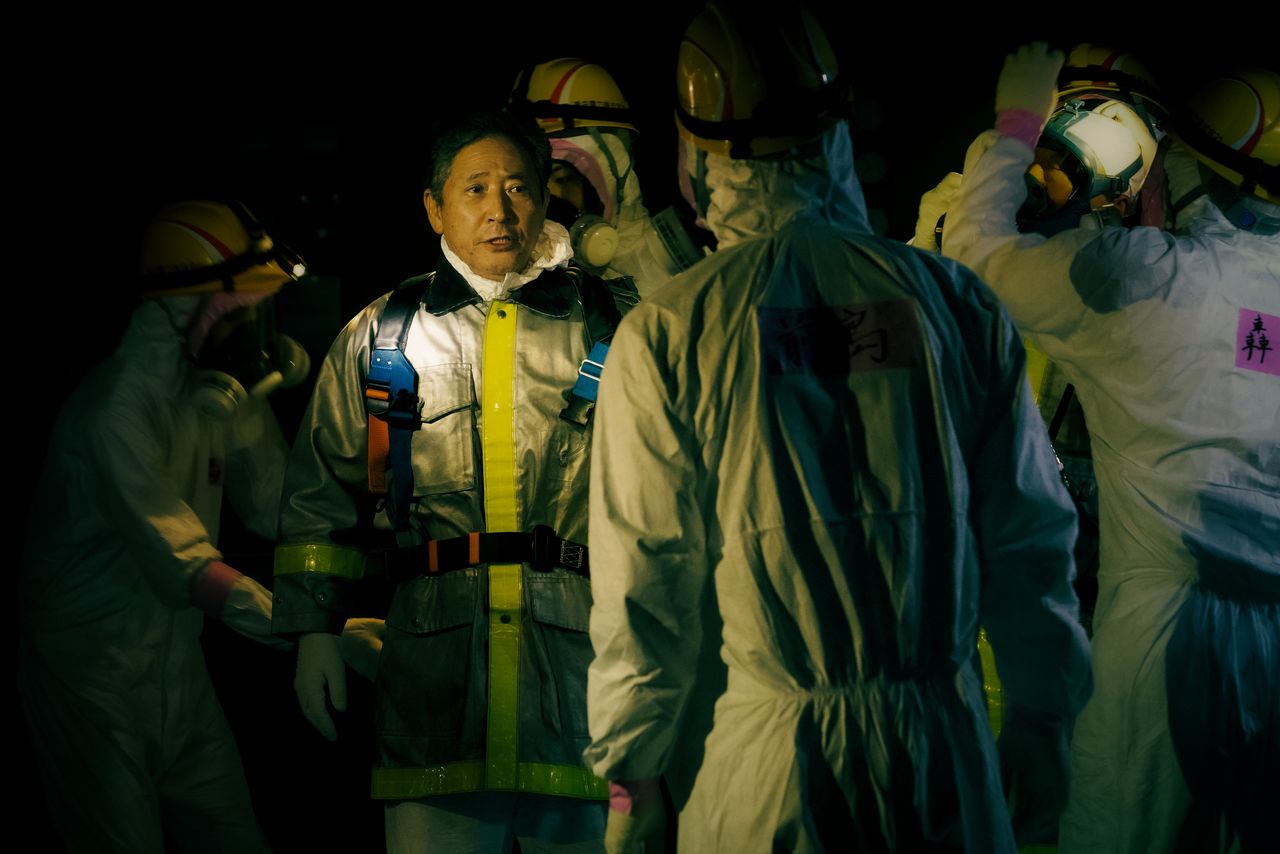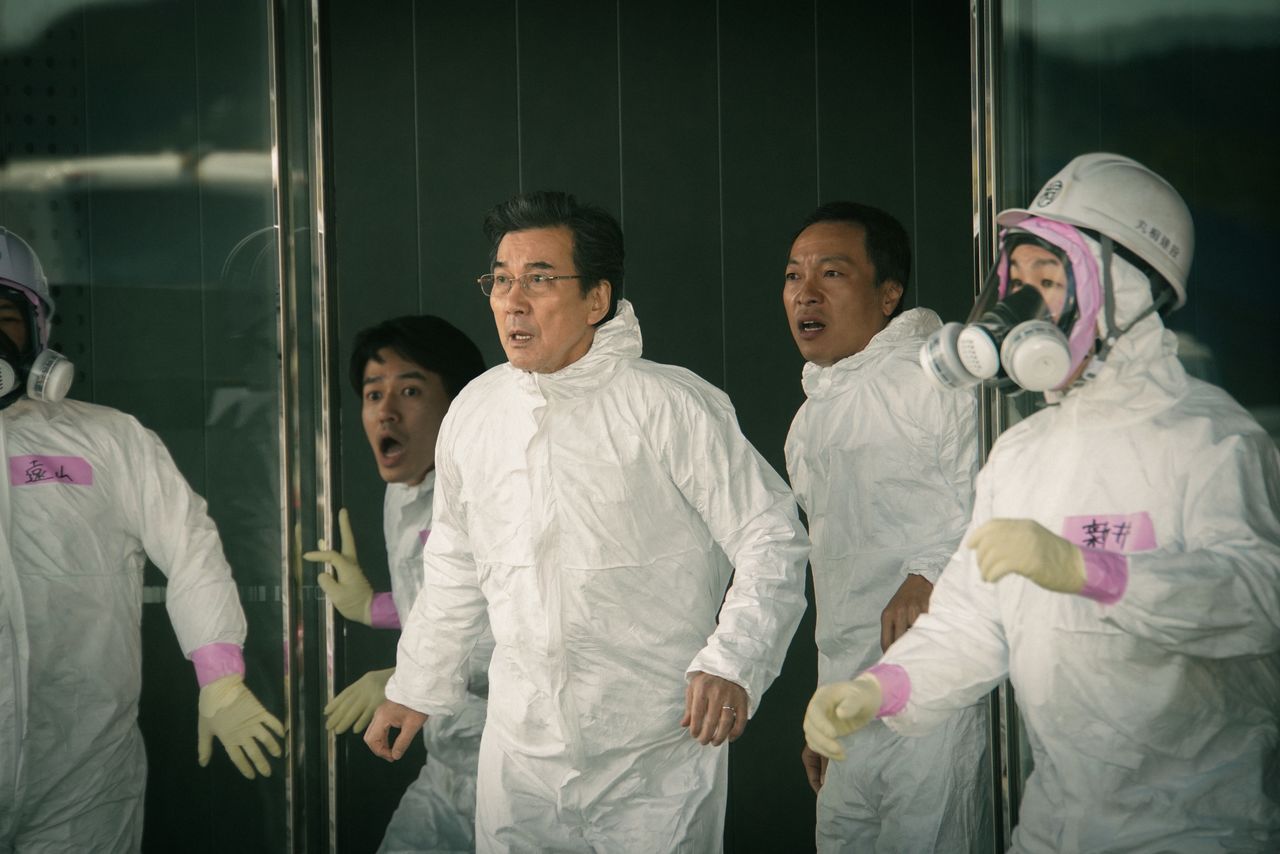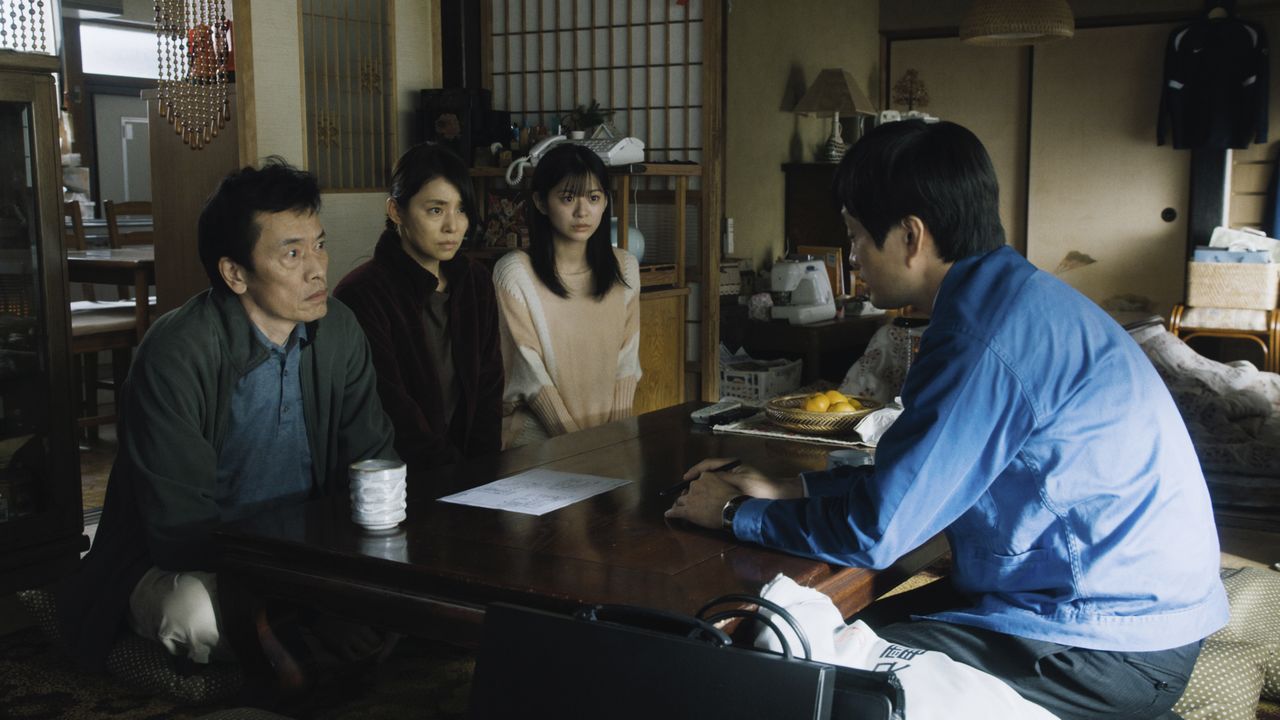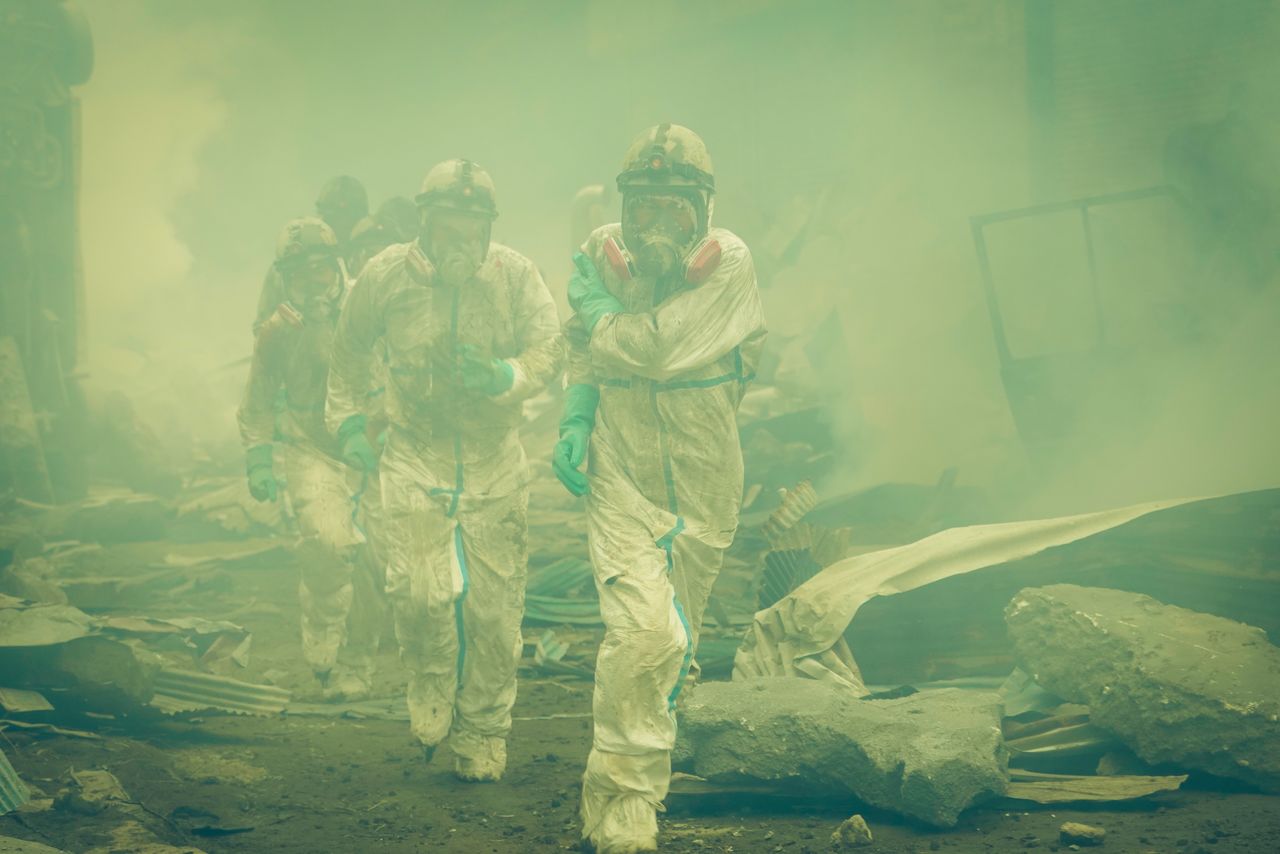
“The Days”: A Week That Shook the World
Cinema Disaster Society- English
- 日本語
- 简体字
- 繁體字
- Français
- Español
- العربية
- Русский
Reliving the Horror
I should start by saying that you shouldn’t force yourself to watch The Days if it brings back memories of the frightening and uncertain time after 3/11 in a way that is hard to stomach. After all, tranquility of mind is important. However, for those who want to learn more about the disaster, the series will serve as a starting point toward understanding one aspect of it. The portrayal of this tense period in time by some of Japan’s top actors is a sight to watch.
The story is portrayed from the perspectives of the nuclear plant, the power utility’s Tokyo headquarters, and the national government. The main character, plant manager Yoshida Masao, is played by Yakusho Kōji, who recently won the award for best actor at the Cannes Film Festival. Yakusho is supported by other top Japanese actors, including Takenouchi Yutaka, Oto Takuma, and Kobayashi Kaoru in the roles of plant employees, Kohinata Fumiyo as prime minister, and Mitsuishi Ken as the vice president of the company. The Days has also attracted attention for being codirected by Ring director Nakata Hideo.
In The Days, despite its coverage of a frenetic period, time moves slowly. After the tsunami knocks out all power to the plant, employees have no idea of what is going on. The show deftly portrays their confusion, the atmosphere of dread, and the slow passage of time. The first day of the accident, which is shown in episodes 1 to 3, is impossibly long. Later, as the gravity of the situation becomes evident, episode 4 portrays the “suicide squad” that sets off to contain the unfolding disaster and the colleagues who see them off.

A dramatic scene from The Days. (© Netflix)
Meanwhile, the utility executives who are in charge of agreeing strategy delegate everything to those in the plant, and their incompetence is such that Yoshida demands that they interfere no more. Government officials, unable to extract any information from utility management, are portrayed as hysterical throughout, and the prime minister makes no attempt to disguise his irritation.
Things go from bad to worse. Images of the hydrogen explosions will evoke the fear of invisible radiation that everyone who was in Japan, especially parts near the station, felt at the time. Portraying the mobilization of the Self-Defense Forces, who sought to cool the stricken reactors with sprayed water, and intense talks by Japanese officials with their US counterparts, The Days shows how various actors reacted to the disaster. Throughout the series, however, it is hard to tell what which day it is, or even whether it is day or night. Ultimately, the worst fears of the panic do not come to pass, but the series ends with the message that we will continue down a path of hardship until the disaster is finally under control at an unknown future date.
The plant manager, Yoshida Masao, has a special presence, and is the only character in The Days who bears the name of a real figure from that time. The names of all other power company employees and politicians have been changed. One wonders why the writers did this. While the creators say they wanted to avoid romanticizing or sugarcoating the story, ultimately the series comes across as a story about TEPCO (renamed TOEPCO in the show), with government employees and corporate executives shown in such a way as to make Yoshida stands out. Plant workers are also portrayed in an emotive manner.
Local residents and firefighters do not make an appearance, with the exception of the family of a young plant worker who disappears. The family are played by prominent actors including Endō Ken’ichi and Ishida Yuriko. The ill-fated worker went to check on the plant immediately after the earthquake, only to be killed by the tsunami, meaning that he was not a victim of the nuclear disaster. Without touching on the fact that the tsunami claimed many victims, The Days rather focuses on this missing employee, thereby strengthening the feeling that it is a story about TEPCO.
One wonders, did these people not consider undesirable scenarios? The power company had never prepared for, nor even modelled, a worst-case scenario of the sort that would trigger a serious accident, and had very little awareness of the need to send staff or supplies to the disaster site. Why did TEPCO headquarters not send reinforcements to the accident site? While plant workers deserve praise for their dedication, the organization’s failings are clear. I believe the disaster was the result of a fatally flawed mentality that avoids consideration of undesirable scenarios. While The Days leaves doubts in place about the accuracy of the historical story it tells, the series has succeeded in portraying this mentality.
There is an undeniable tendency among residents of disaster-prone countries to try and forget the past or take a fatalistic attitude to natural events. However, it is foolish to relinquish our ability to change things that we have power to change.
The question posed by the advertising material for The Days—“Natural disaster or man-made disaster?”—is one worth pondering.
Finally, let me mention a few scenes that impressed me.
When the prime minister, who had done nothing but yell at people, goes to Fukushima and meets Yoshida, he issues an order to send in the Self-Defense Forces. The prime minister’s facial expression is unforgettable. Equally moving are the mother who silently folds paper cranes while praying for her son to be found, and then, upon reading comments by online trolls accusing him of having “run away,” murmurs “I wish he had.”
The Days is a work of fiction, and while it claims to be based on fact, it uses a lot of artistic license. The viewer needs to remember this, and not forget that the series only shows one side of the disaster—that there were many other victims who are not portrayed, and that even now the disaster is still not under control.
(Originally published in Japanese on July 4, 2023. Banner photograph: A scene from The Days. © Netflix.)
The Days was released internationally on Netflix on June 1, 2023.
Fukushima cinema TEPCO tsunami Great East Japan Earthquake nuclear Netflix Yakusho Kōji


